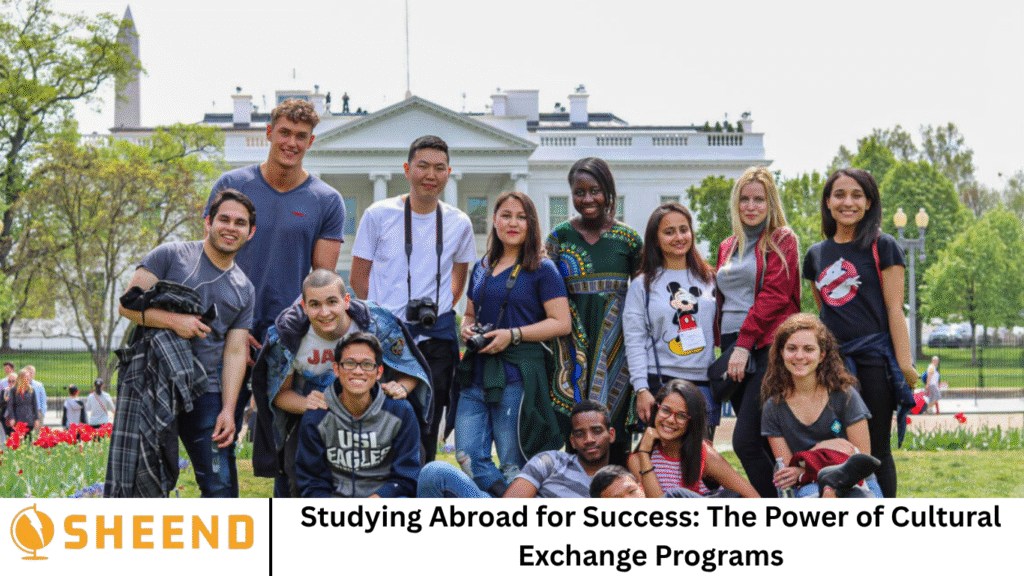In today’s interconnected global landscape, success is no longer defined solely by academic credentials or local experience. Employers, educators, and changemakers increasingly value individuals with global perspectives, cultural adaptability, and international exposure. Enter the world of cultural exchange programs.
Studying abroad isn’t just about earning academic credits in a different country. It’s about personal growth, professional development, and acquiring a skill set that opens doors to new opportunities. Cultural exchange programs serve as a bridge — connecting people across continents and building global citizens prepared for the challenges and opportunities of the 21st century.
This article explores the many ways cultural exchange programs prepare students for success — from language proficiency and cross-cultural communication to resilience, leadership, and global networking. Immersive experiences that allow students to study abroad and engage with different cultures, languages, and lifestyles.
More Read: Building Safer, Stronger Teams: 7 Ways to Improve Cultural Resilience
Academic Excellence Through Global Learning
Studying in a foreign institution exposes students to diverse academic systems, research methodologies, and educational philosophies. Whether it’s attending a lecture at the Sorbonne, conducting marine biology research in Australia, or participating in a design studio in Japan, these experiences broaden intellectual horizons.
Key Benefits:
- Exposure to different academic structures and expectations
- Development of independent learning and critical thinking skills
- Access to specialized programs or courses not available locally
Global learning not only enhances academic capabilities but also encourages a lifelong curiosity that continues well beyond graduation.
Cross-Cultural Competence: A Vital Skill in the Modern Workplace
Cultural exchange is, at its core, about stepping outside of your cultural comfort zone. When students immerse themselves in new environments, they develop cross-cultural competence — the ability to interact effectively with people from different backgrounds.
Why it Matters:
- Multinational companies seek employees who can work with diverse teams.
- Diplomacy, education, healthcare, and tech sectors require global awareness.
- It fosters empathy, patience, and open-mindedness.
Understanding cultural nuances helps in avoiding miscommunication, improving collaboration, and building trust across cultures — all vital traits in a globalized economy.
Language Skills That Go Beyond the Classroom
Language immersion is one of the most transformative aspects of studying abroad. Rather than learning from a textbook, students use the language in everyday life — at markets, in cafes, during group projects, and with host families.
Advantages of Language Immersion:
- Accelerated fluency through real-world practice
- Better pronunciation and comprehension from daily use
- Cultural insights tied to language expressions and idioms
Being multilingual opens career doors in international business, translation, diplomacy, tourism, journalism, and more.
Building Confidence and Independence
Moving to a new country — sometimes alone — is a bold step. From navigating unfamiliar streets to managing bank accounts or health appointments in another language, every challenge becomes an opportunity for personal growth.
Skills Gained:
- Self-reliance and problem-solving
- Adaptability and emotional intelligence
- Resilience in unfamiliar situations
Many alumni of cultural exchange programs describe their experience as life-changing — helping them discover who they are, what they value, and how they react under pressure.
Career Readiness and Global Employability
Employers increasingly seek candidates with international experience. Why? Because studying abroad signals maturity, adaptability, and a proactive attitude — qualities that are hard to teach but invaluable on the job.
Global Employability Advantages:
- Resume boost with international experience
- Networking opportunities with global peers and professionals
- Internship and volunteering options abroad
In competitive fields, having studied in another country can set an applicant apart and demonstrate a willingness to take initiative and embrace challenges.
Lifelong Friendships and a Global Network
Cultural exchange programs forge deep connections. Living, studying, and traveling with others fosters friendships that often last a lifetime. These bonds extend beyond the personal — they often become professional networks in the future.
Benefits of a Global Network:
- Access to global job opportunities and collaborations
- Exposure to different worldviews and life stories
- Cultural ambassadors for mutual understanding
In a world where who you know can matter as much as what you know, a multicultural peer group is an invaluable resource.
Contribution to Global Citizenship
Studying abroad isn’t just about personal benefit. Students become informal ambassadors for their home countries and return with insights about the world that promote peace, understanding, and mutual respect.
Global Citizenship Means:
- Understanding shared global challenges (climate change, inequality, etc.)
- Advocating for intercultural respect and inclusion
- Applying global insights in local communities
Cultural exchange participants often take what they’ve learned back home — enriching their local communities with global perspectives and ideas.
Frequently Asked Question
What is a cultural exchange program?
A cultural exchange program allows students or young professionals to live and study in another country while engaging with the host culture. These programs often include academic coursework, language learning, and community involvement.
How does studying abroad help with my career?
Studying abroad enhances employability by building soft skills such as adaptability, problem-solving, and communication. It also adds a unique credential to your resume that signals global awareness and initiative.
Do I need to speak the local language fluently before joining?
Not always. Many programs are offered in English or provide intensive language training. However, learning the basics of the local language before departure can significantly ease the transition.
Are cultural exchange programs expensive?
Costs vary widely depending on destination, program length, and included amenities. Scholarships, grants, and exchange partnerships between institutions can help reduce expenses significantly.
What are the most popular destinations for studying abroad?
Popular destinations include the United States, United Kingdom, Canada, Australia, Germany, France, Japan, and South Korea — known for their world-class education systems and cultural richness.
Will studying abroad delay my graduation?
Not necessarily. Many programs are designed to integrate seamlessly with your academic curriculum. Consult your academic advisor to ensure credit transfer and alignment with your degree path.
How can I prepare for a cultural exchange experience?
Start by researching your destination’s culture, language, and customs. Connect with past participants, attend orientation sessions, and keep an open mind. Pack flexibility, curiosity, and a willingness to learn.
Conclusion
Cultural exchange programs are more than just academic detours — they’re stepping stones to a successful, well-rounded future. In a world where industries, economies, and societies are deeply interconnected, students who engage with the world firsthand are better equipped to thrive. Whether you’re pursuing a career in international relations, entrepreneurship, education, tech, or creative arts, the global mindset and experience gained through studying abroad give you a competitive edge.


